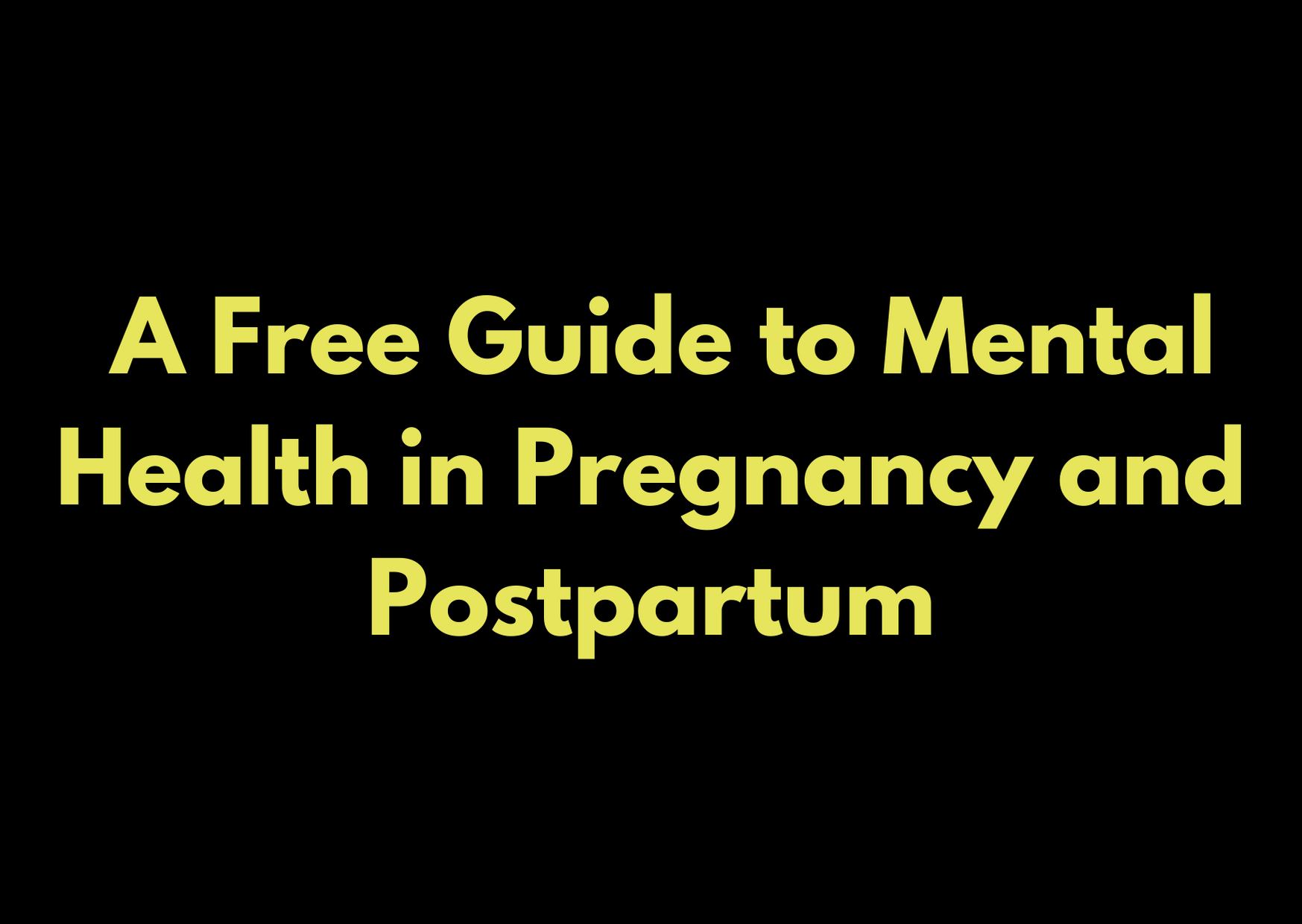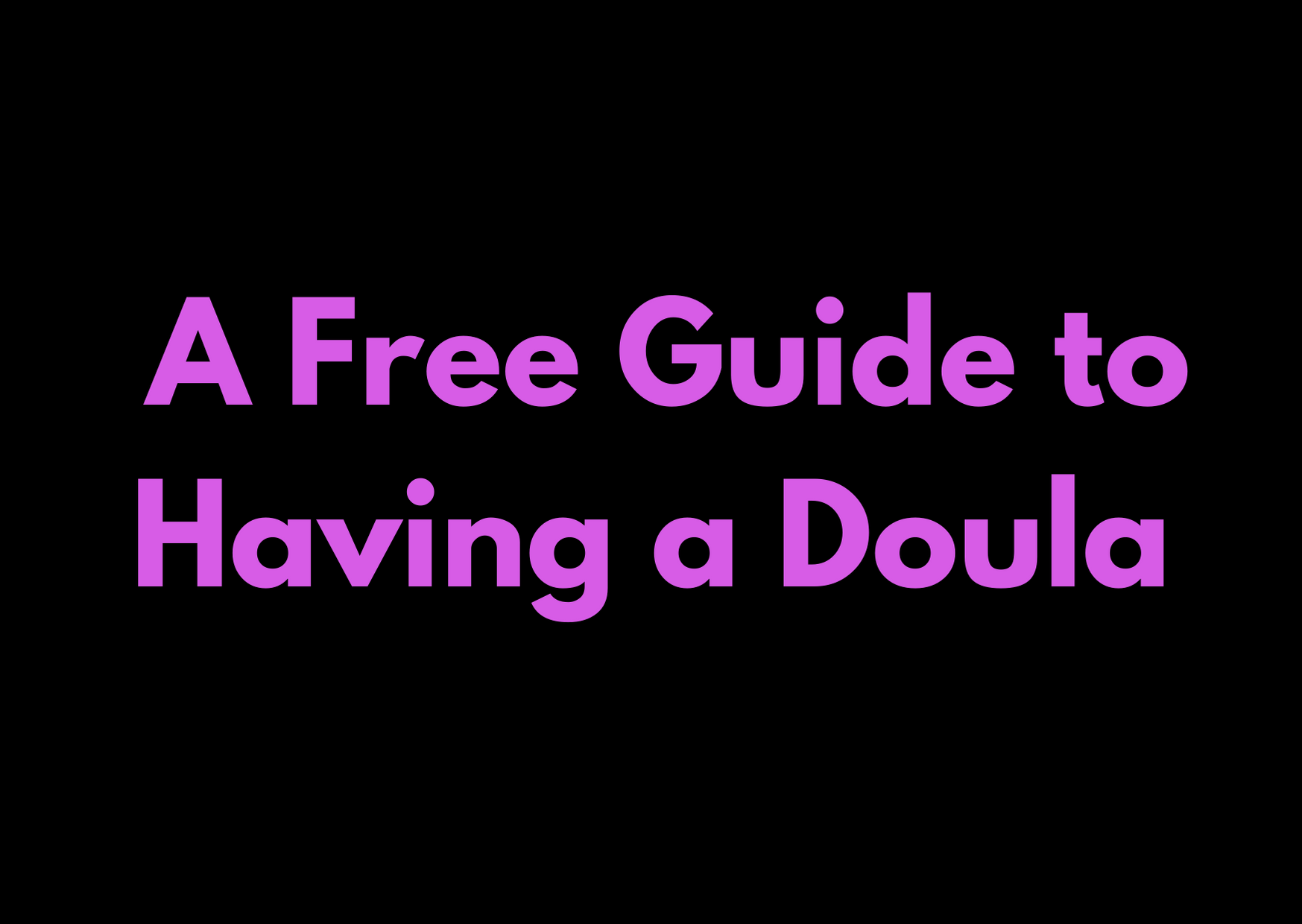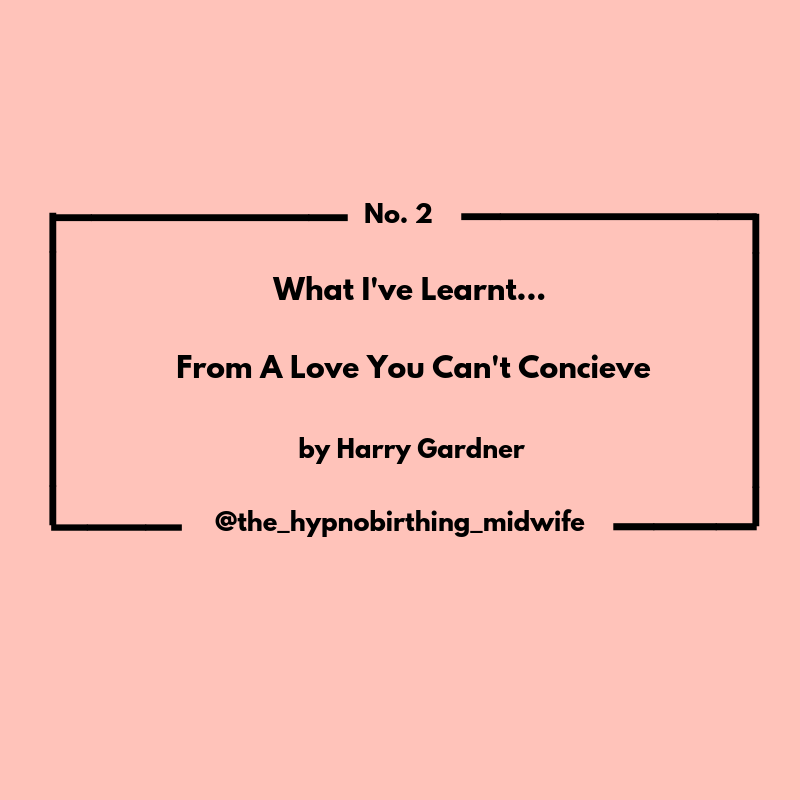A Free Guide to Mental Health in Pregnancy and Postpartum
Becoming a mother is one of the most significant transitions in a woman’s life. Not only is there the physical growth and birth of the baby, but there is a parallel emotional journey towards motherhood.
The way a woman experiences her pregnancy is individual to her. We all come to pregnancy with our own important personal histories. You may have been through many cycles of fertility treatment; you may not want children; you may have conceived in a blended cultural family; you may have experienced a previous pregnancy loss; you may have conceived straight away and are ecstatic……
Becoming a mother is one of the most significant transitions in a woman’s life. Not only is there the physical growth and birth of the baby, but there is a parallel emotional journey towards motherhood.
The way a woman experiences her pregnancy is individual to her. We all come to pregnancy with our own important personal histories. You may have been through many cycles of fertility treatment; you may not want children; you may have conceived in a blended cultural family; you may have experienced a previous pregnancy loss; you may have conceived straight away and are ecstatic; you may be recently bereaved; you may have experienced birth trauma; you may have become pregnant at the same time as your best friend… this is by no means a complete list, but highlights how each and every woman will be experiencing and living her pregnancy differently.
Most women experience changes in their mood and relationships during pregnancy. This is to be expected as it is a huge life-changing time. For most, these feelings come and go, and may feel momentarily overwhelming, but you are able to continue living your life as you would like. For some, however, these feelings and emotions can be all-consuming, and they hinder every-day life. A pre-existing mental health diagnosis can sometimes be an indication of maternal mental health challenges in pregnancy or with a new baby, although not always.
Please know, that the behaviours and thoughts I list below are not to be used to diagnose, these are for personal reference only. The list is not exhaustive, and there may be symptoms and behaviours not mentioned. If you are concerned about yourself or a loved one, please speak to a professional.
Ante/Postnatal Anxiety – anxiety can heighten during pregnancy. This can feel like restlessness; running thoughts; heart thumping; sweaty palms; panic; breathlessness; hypervigilance; insomnia; exhaustion.
Ante/Postnatal Depression – can feel like a heavy dampening of everything; a lack of joy and excitement; some describe feeling empty and no variation in mood; struggling to sleep, sheer exhaustion; no motivation.
Ante/Postnatal Obsessive and compulsive behaviours and thought patterns (OCD). Thoughts that can feel overwhelming, intrusive and terrifying. Obsessively counting kicks/movement. Fear of baby dying. Compulsively cleaning, disinfecting, bathing.
Postnatal maternal OCD can sometimes present as relentless thoughts around the terror of harming your baby. Although you know you will never act upon these thoughts, they can be so chilling and abhorrent, and flood your mind. Please know these thoughts are common, and your baby is safe.
Birth Trauma – is when you were or perceived that you or your baby were under threat of death or serious injury. Re-experiencing the trauma through flashbacks, intrusive thoughts and nightmares; being hypervigilant, especially around the baby; feel guilt around the birth, or feelings of depression.
Postpartum Psychosis – is a rare, but treatable medical emergency. It can present in many different ways but is often accompanied by hallucinations, delusions and mania. It can appear suddenly and can change from moment to moment. If you suspect yourself or a loved one of experience postpartum psychosis, please read the APP website and call a healthcare professional immediately.
Although I have listed some of the occasions when mental health is strained, please know that for many women, the experience of becoming a mother is positive and fulfilling.
However, if you are struggling, there are some things you can do to help alleviate this.
Speak to your midwife or GP.
Speak to your friends.
Join ante/postnatal classes.
Gentle exercise (especially outdoors).
Try and carve out some alone time, or social time – whichever is most comforting to you.
Care for your body.
Journal or note your thoughts down in a way that feels right to you. Sometimes telling someone else feels too much, and by writing you are telling yourself, and this can be surprisingly effective.
An incredibly uplifting and hopeful thought to hold on to is that with help and support, most perinatal mental health challenges are temporary.
Some really useful websites:
You can find a FREE shareable PDF of this and many other resources HERE.
…………………………………………………………………………………………………
Elisha Nunhofer is a person-centred psychotherapist who specialises in maternal mental health. She has extensive experience of working with clients who are exploring the possibility of having children; going through fertility treatment; have experienced all forms of pregnancy loss and termination; ante and postnatal depression and anxiety; adoption and surrogacy.
She sees clients via video call or in-person in East Sussex. For more information, please visit her website.
A Free Guide to Having a Doula
To doula or not to doula…that is the question!
Ever heard of a doula? Wondered what one is, what they do and how they can help? Is it all witchcraft and incense? Hopefully, I can dispel a few myths here!
What is a doula?
A doula supports women and those that birth through pregnancy, birth and the postnatal period. How do we do that…. well, to start with we are non-judgemental and incredibly open in our approach. We appreciate that everyone makes decisions that are right for them…..
To doula or not to doula…that is the question!
Ever heard of a doula? Wondered what one is, what they do and how they can help? Is it all witchcraft and incense? Hopefully, I can dispel a few myths here!
What is a doula?
A doula supports women and those that birth through pregnancy, birth and the postnatal period. How do we do that…. well, to start with we are non-judgemental and incredibly open in our approach. We appreciate that everyone makes decisions that are right for them at any given moment and our aim is to make sure that you feel fully informed and supported to make the choices that suit you.
We can help by signposting good evidenced-based research (no opinions, judgement or advice here, we want you to explore what feels right for YOU) and by exploring the emotional and practical needs a doula can bring, it means we will respond to the individual needs of each pregnant person…with the idea that you feel confident and empowered, and that any gaps in knowledge, care, understanding or communication is bridged.
You can read more about the role of the doula here and this is a great source of evidence-based information.
Are we just for the mother to be/birthing person?
No! As doulas we often support the partner, whoever that may be, so they too are informed and relaxed. By offering continuity of care, we build relationships with whoever needs that support so that when the day of birth arrives, everyone is as positive and included as they can be.
Are we clinical and can we give medical advice?
In short, no. We are not medics but fully appreciate there are roles we all play when supporting birthing women/people… although we have different roles, doulas keep the needs of those they support, at the forefront of their minds always. We want that oxytocin flowing so work hard to make your birth space as calm as possible!
Are there statistics to show the benefits of having a doula?
Yes! There is evidence to show that having a doula can:
Reduce risk of caesarean birth.
Reduce risk of instrumental birth.
Reduce need for painkillers or epidural during birth.
Reduce risk of induction of labour.
Shorten labour.
Increase parental satisfaction with the birth experience.
Increase the likelihood of initiating breastfeeding.
Increase the likelihood of successfully establishing breastfeeding and breastfeeding at six weeks.
Lower incidence of depressive symptomology.
Improve equity and provide culturally responsive care
(Brigstocke S. MIDIRS Midwifery Digest, vol 24, no 2, 2014, pp157-160)
The best doula for you?
Chat to a few! See who you connect with... when the rapport flows and you know you could chat about anything with ease…you’re on the right track!
You can download a FREE PDF of this piece and many other useful resources HERE.
………………………………………………………………………………………………………………………………………….
Sam is a married mum of two, has a cat, dog & bearded dragon & has lived in Essex all her life.
After training in 2008 with Nurturing Birth she dipped her toe further into the birth world (also attending the training & facilitating for Mindful Doulas) and went on to explore mental wellbeing, Birth Trauma (3 step rewind technique), infant massage, hypnobirthing and many other workshops and study days that caught her eye! Finding community, supporting those who need it and embracing who you are is at the heart of Sam’s drive and is why you’ll find her as ‘the unapologetic doula’ on social media!
She’s been a doula mentor for seven years and at the end of 2019 was overjoyed to be asked to join the Nurturing Birth team where she has branched out to facilitate the new doula courses 😊
Contact Sam via email – samshepp4@yahoo.com or call 07793970367 for a free chat on how a doula can benefit you, or check out the links on this guide for her FB page, more info and reviews/testimonials.
What I've Learnt... From A Love You Can't Conceive
My start is not the start and early life my children have had. At around 2 years old I was removed from my drug-addicted parents and placed in a children's home.
I was adopted and later sent away to boarding school, suffering abuse of various sorts in both instances.
This is not a hard-luck story. This is a story of…
My start is not the start and early life my children have had. At around 2 years old I was removed from my drug-addicted parents and placed in a children's home.
I was adopted and later sent away to boarding school, suffering abuse of various sorts in both instances.
This is not a hard-luck story. This is a story of the sheer transformative power that comes from having children and the indisputable gift of parenthood.
I met my beautiful wife whose daughter had just turned 8. The road of step parenting has been rocky at times, to say the least. That could be a story in its own right....
She fought me hard but I could see her fears, empathy, and consistency won through. These are things I have learnt are so powerful in parenting.
I'm touched to say that today this amazing 17-year-old young lady calls me Dad. The lesson here is that the power of just being there is so strong. Presence through the years and containing their emotions and helping them to understand them is something vital.
On the 1st February 2013 my first child was born. Tears come to my eyes just writing this. We named him Morris. Perhaps, after Johnny Morris the old children's tv presenter? We can never be sure how the name came about?
My wife gave birth to him at home in our bed. I had never experienced such primal power in my life and my admiration and love for her swelled. There were complications towards the end but she was determined, so I was determined for her.
I did all I could to be steady for her, taking little breaks when I could to pray and meditate in the toilet. These moments were very brief as if I wasn't massaging her or feeding her an endless stream of chocolate, I was in trouble!
My first born was the happiest day of my life. To have this experience of my own flesh and blood is something I can't begin to explain here. I knew now, so deeply that life had new meaning and that with new life everything had opened up. I was consumed by a love I had not comprehended.
On the 22nd of September 2015 my second son was born. We named him Ernest. Originally going to be called Ned, we changed it last minute before signing the birth certificate as we felt he was too sombre for Ned (we couldn't have been more wrong!).
We had another home birth and this time I caught him. I'm welling up again as I recall his warmth and fragility in my hands.
Incidentally, whilst writing this blog I did a little google search on Johnny Morris and discovered that his full name is Ernest, John Morris. I had no idea. I'm a little freaked out. It's like the spirit of Johnny may have somehow entered us around the time of naming our children. I did play his stories to Morris in utero....
My heart can feel like it's full to capacity with pride and love for my children. Then they show me something new, some new expression or echo of their mother. They dance in some bizarre interpretation of a song, talk sweetly in their sleep, show me a little more of who they are and capture me completely.
These things and infinity more, incrementally build on the love I have. It is this kind of love that I don't think can be conceived until you have your own children.
Yes it can be tiring and at times you can be going out of your mind but they are a blessing that defies description. The pure light that emanates from them charges me daily.
There are a few things that I have learnt are key in this...
They have a life of pure acceptance. This is unconditional positive regard. I am not over compensating with this for what I lacked growing up but I more than some understand the importance of this is raising children with feelings of healthy self-worth.
I'm not perfect at this but I strongly believe in complete connection with my children. This involves empathy, putting myself in their tiny shoes and meeting them where they are at. I don't want them to feel alone and not understood. This has worked wonders, especially in regards to helping with tantrums. I can't help but give them a bottomless love and I like to think I have very secure children.
With these things I hope they will be as strong, balanced and happy as they can be. I'm devoted to giving them this parenting but I like to have these things to keep going:
Daily meditation
Horror films
Date nights
My counselling course studies (Thursday nights out)
My music
Writing, children's stories or just my journal
Chatting with friends
Walks alone
And dedication to my business as a gentle parenting consultant
Harry (Dad to Laura, Morris and Ernest) x


